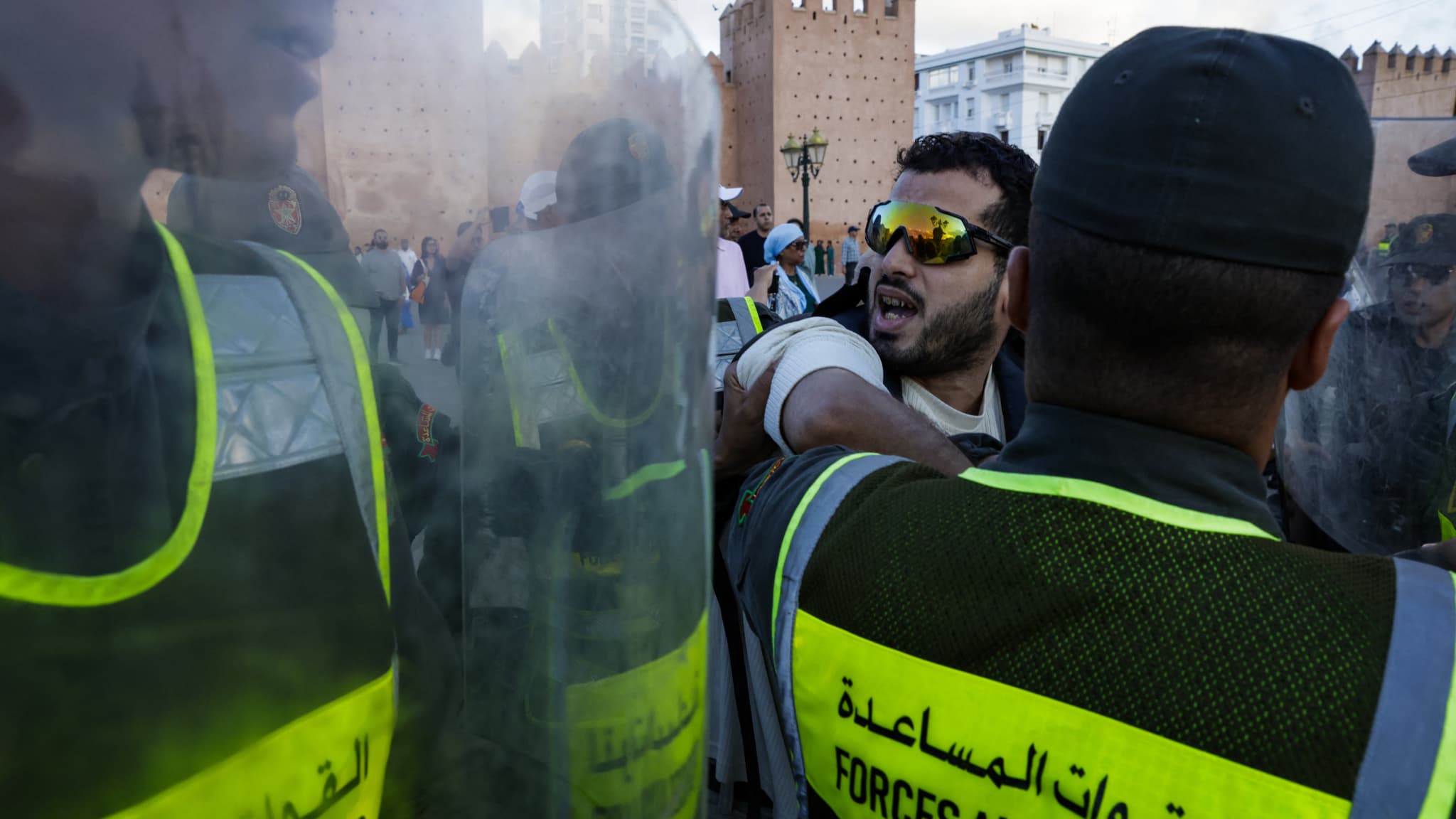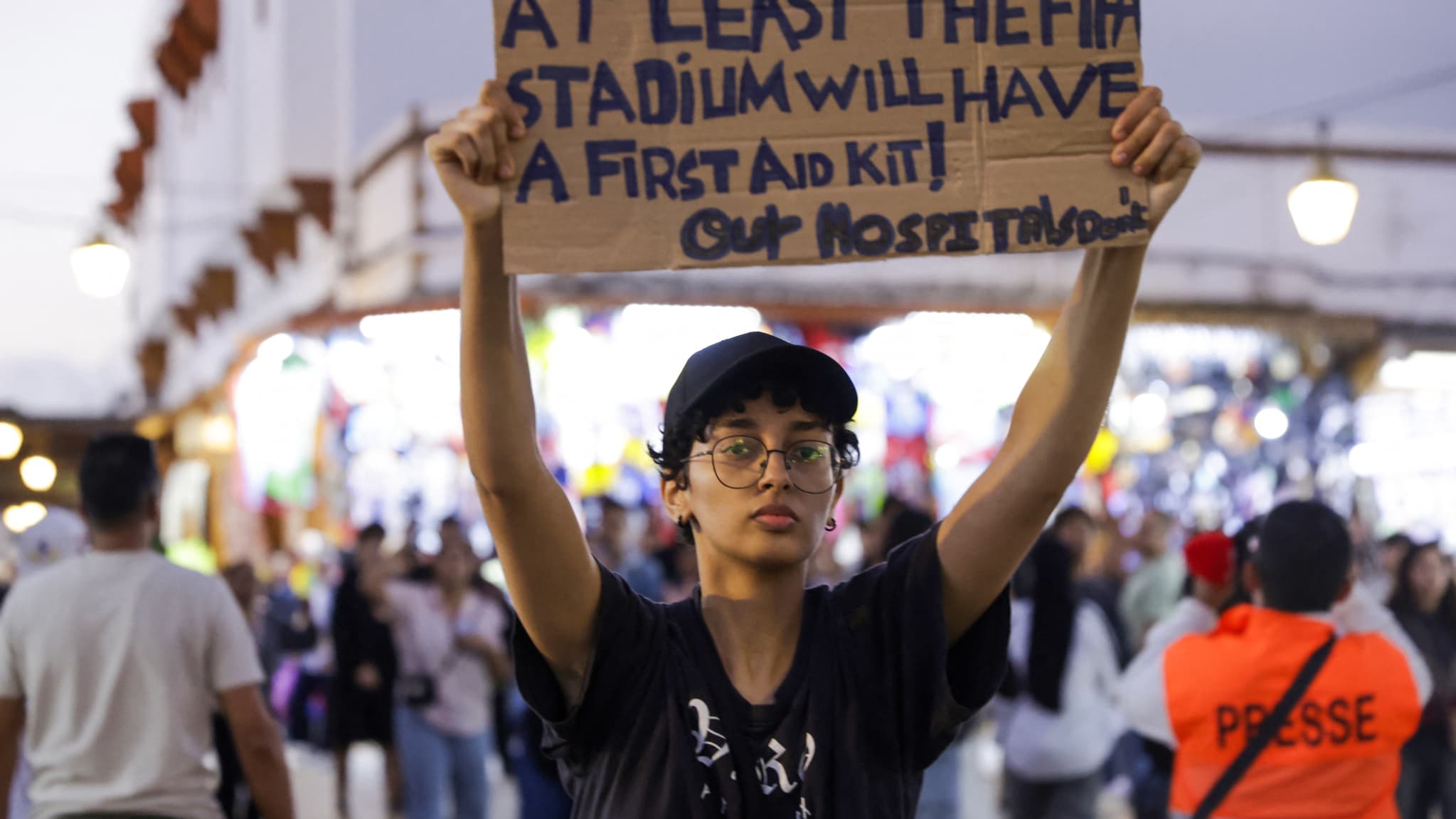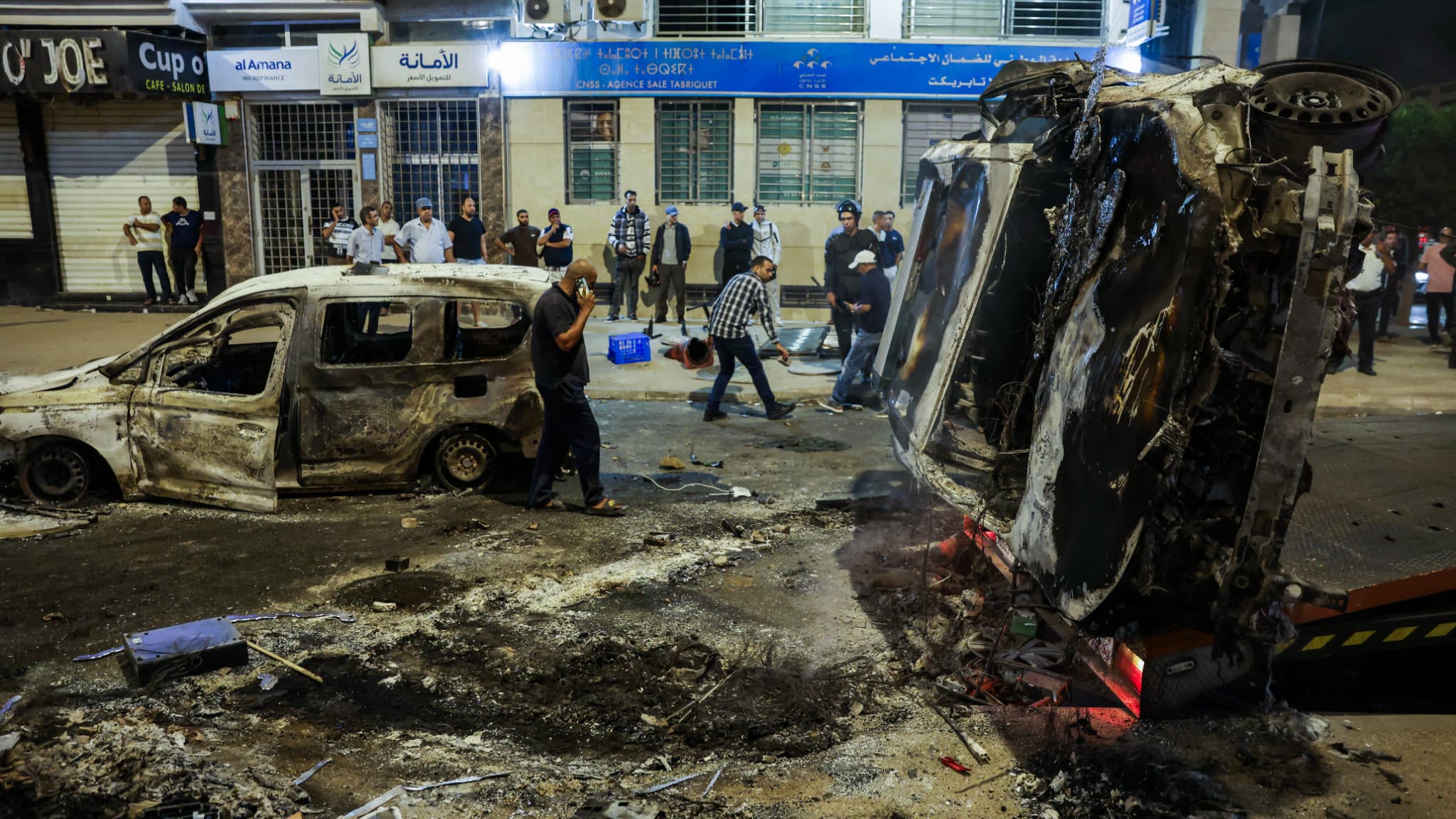The days of manifestations are linked to Morocco and the level of violence increases. The Querifian kingdom has been shaken since September 27 by a social movement that adds anger. During the night from Thursday to Friday, the group of Moroccan youth “Genz 212” requested the government’s resignation, after a sixth consecutive night of demonstrations
This Thursday, October 2, the Genz 212 Collective, whose initiators are unknown, announced new demonstrations that want to be “peaceful” to claim better public services, after a night of violence that killed three people.
On Wednesday night, three people were killed by Gendarmes while trying to assault a local brigade in LQlia near Agadir (South), after burning a vehicle and a building, according to local authorities. The attackers wanted to fly “ammunition and service weapons,” they added.
According to local media, vandalism acts have taken place in another town near Agadir, Sidi Bibi, where people burned municipal offices.
• A collective called Genz 212
In social networks, groups were formed to ask for new events from September 27. A group on the Discord Discord platform called Genz 212, which now brings together more than 150,000 members, has become a place to exchange and coordinate demonstrations.
The fair is presented as “a space for discussion” around “questions such as health, education and the fight against corruption,” says “his love for the homeland and the king.” “Genz” corresponds to the generation of young people aged 18 to 34 and 212 is the indicative telephone of Morocco.
An interactive map of events “is also transmitted to demand public services worthy of our nation” on the Moroccan youth voice site, the voices of Moroccan young people. The slogan of the groups was to demonstrate peacefully.
The Genz 212 group, announced this Thursday, October 2, that the demonstrations would continue. “We ensure public opinion and the authorities that our manifestations will be completely peaceful,” said the group, indicating “rejecting any form of violence, vandalism or disturbances” and urge protesters to respect the peaceful character “of the movement.
• Events in several cities
At the beginning of the social movement, on September 27, the demonstrations brought together hundreds of Moroccans in the capital, Rabat and other cities such as Tanja, Meknes, Marrakech, Casablanca or Tawunat. The police had arrested dozens of protesters and released them.
Other demonstrations had taken place the next day, Sunday, September 28. “People want health, education and who are responsible,” they sing to protesters, who also demand the “departure of Prime Minister Aziz Akhannouch,” said AFP journalists on the spot. Police have made new arrests.
On Tuesday night, unauthorized demonstrations had already resulted in clashes with the police in cities such as Oujda (East) and Inzegane, in the suburbs of Agadir (South).
After this violence, which caused almost 300 injured, mainly in the ranks of the police, more than 400 people were arrested, Rachid El Khalfi said, spokesman for the Ministry of Interior.
The latter said that more than 140 police vehicles and 20 individual cars had been burned and that protesters also assaulted administrations, banking agencies and companies, especially in Inzegane and Oujda.
In Rabat, the Prosecutor’s Office decided on Wednesday that a second group of 97 people, three of whom were put in detention, were going to be judged, said his lawyer Soud Brahma to the AFP, and added that the date of his trial has not yet been established. A first group of 37 people, three of whom were arrested in detention, must be tried from October 7, according to Brahma.

• A succession of crisis
A first wave of protest occurred in Morocco in mid -September when eight pregnant women admitted by caesarean sections in a public hospital in Agadir died due to medical failures. This case has become emblematic of a breathless health system.
Calls to be demonstrated have been shared in many cities in the country to denounce the deterioration of health conditions in hospitals. The hospital director and several local officials have been fired, an internal investigation was diligent and announced the investment.
The security forces were deployed and carried out arrests. Meetings have been forbidden. On September 21, the Moroccan Human Rights Association denounced on its social networks: “the prohibition, repression and arrests to cover the disastrous state policy in matters of the right to health.”
In addition to the improvement statements in the Public Health Service in Morocco, the Government has formed another challenge around the reform of higher education during the summer.
This project was vilified by the teaching and unions of students who see this threat bill on the principle of free, the risk of privatization of the sector in this bill, the establishment of a political protection on universities or even obstacles with the rights of students to organize.

Social anger contrasts with government communication around the reception in a few months of the African Cup of Nations from December 21 and then from the 2030 World Cup. “The stadiums are there, but where are the hospitals?”, The protesters, one of the other slogans, are “is” freedom, dignity, justice. ” Moroccan international soccer player Azzedine Oona has indirectly supported the movement.
Source: BFM TV


